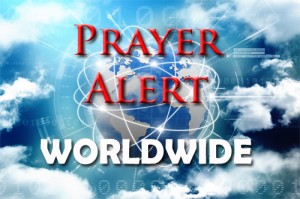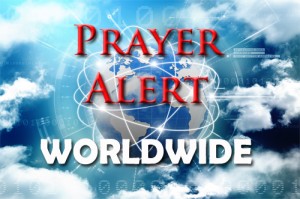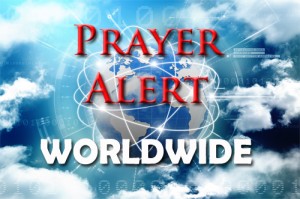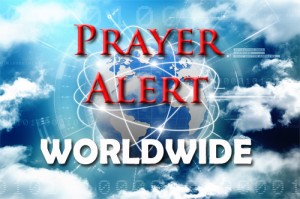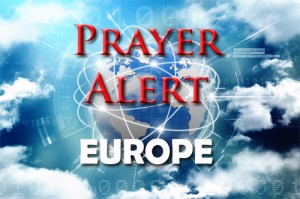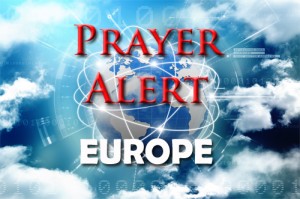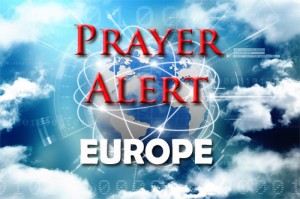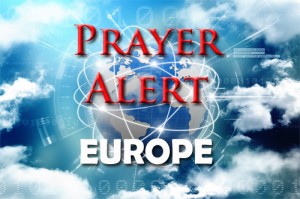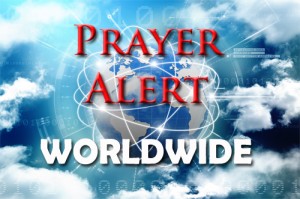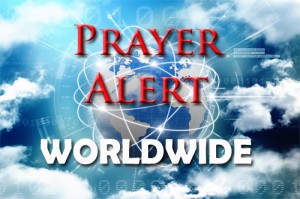Displaying items by tag: Election
Mauritania: national assembly election
On 1 September, the North African desert country Mauritania will have an election for its national assembly. 146 members will be elected for one- or four-year terms. Most of its population is nomadic, but a third of Mauritanians are registered voters. It is one of the world's poorest nations, and one of the most religiously restricted. Sunni Islam and Sharia law have ruled them over a thousand years. The government prohibits conversion to Christianity. Those who do so face the death penalty, and must not enter non-Muslim households. A caste system grants privileges to certain groups. They marginalise darker-skinned Mauritanians or anyone who holds a worldview other than Islam. The Islamic terror group AQIM (Al-Qaeda in the Islamic Maghreb) operates in Mauritania.
Zimbabwe: disputed presidential election result
The opposition party has rejected President Emmerson Mnangagwa's historic presidential election win after a poll marred by deadly violence and allegations of vote-rigging. On 2 August, Mnangagwa was declared the winner of the first election since the toppling of veteran leader Robert Mugabe, with a 6-point lead over Nelson Chamisa, head of the Movement for Democratic Change (MDC). Mnangagwa won 50.8 percent of the vote, the election commission said, and Chamisa 44%. The president tweeted, ‘Though we may have been divided at the polls, we are united in our dreams. This is a new beginning. Let us join hands in peace, unity, and love, and together build a new Zimbabwe for all!’ The chances of this happening appear slim, as the MDC has rejected the result as ‘fake’ and says it will challenge it in the courts. Six people have already died in clashes between protesters and the security forces which are patrolling the streets of Harare.
Pakistan: election in disarray
Pakistan’s election results are in doubt, with the incumbent Pakistan Muslim League (PML) rejecting the result amid widespread allegations of ballot rigging in favour of Imran Khan’s PTI party. With most of the votes counted, Khan’s party is in the lead, but the results have not yet been confirmed. The election was marred by violence, with 31 killed by a bomb at one polling station. The PML leader said his party’s polling agents had been evicted from dozens of stations by security officials before a final tally, so they were unable to monitor potential tampering. In fact almost every party except the PTI said their polling agents had been excluded from polling stations. For the first time ever, no Christian candidates were picked by the mainstream parties for the national assembly, so Christians will be bereft of a voice whoever wins. Khan said he will not change the blasphemy laws, rather he will ensure they are enforced. The blasphemy law is a discrimination tool for persecuting Christians.
Iran: proposed changes in voting
Conservative MPs in Iran are proposing that Iranians should only be allowed to vote for members of their own religious group, making it impossible for members of religious minorities to be elected to any position of authority (90-95% of the population is Shia Muslim). Recently a Zoroastrian was suspended from the city council of Yazid, a historic city with many ancient Zoroastrian sites. The ruling clerics are becoming increasingly unpopular for taking harsher measures to block members of religious minorities from higher office. The proposal to force voters to vote for candidates from their own religious background would violate everyone’s democratic right to elect and be elected. Journalists, lawyers and some MPs have pointed to the presence of three Christians, a Jew and a Zoroastrian in Iran’s national parliament. The constitution currently allows each of the three minority groups a representative in parliament.
Austria: election result
The commanding victory of populist parties in the national election will reverberate beyond Austria. Sebastian Kurz, when foreign minister, closed routes through the Balkans for immigrants, and his party spearheaded laws banning full-face Muslim veils in public spaces. His political rise follows the far right gaining influence in Germany last month. Nationalist and anti-immigrant forces across the EU are feeling emboldened by the vote, which could bring the Islamophobic Freedom Party to power in a coalition government in Vienna. The People's Party want to fine migrants who refuse to attend integration and language classes, but the Freedom Party calls for dropping such classes completely. It has also pledged to deny migrants access to welfare payments altogether. If the two parties became coalition partners, Austrian politics would take a seismic shift to the right.
Germany: influence of AfD
Alternative for Germany (AfD), founded in 2013, is a right-wing populist and Eurosceptic political party. In 2016 it made an alliance with the Freedom Party of Austria, with both party leaders saying border control officers should use armed force if necessary to protect the border. By May 2017, the AfD had gained representation in 13 of the 16 German state parliaments. Now it has become the third largest party in the German parliament, partly because immigration was the main election issue. Postwar Germany is multicultural, tolerant and liberal: abhorring war, and defending the environment, human rights and international teamwork. BUT the influx of over one million Muslim migrants, Russia’s dramatic resurgence, and Europe’s rolling financial problems are arousing other feelings and aspirations. These emotions don’t square with the desire to be tolerant and multicultural. Many are saying that a more powerful, more assertive, more terrifying Germany is coming.
Germany: election on 24 September
Angela Merkel has been chancellor since 2005. Her Lutheran faith (she calls it an inner compass) expresses itself in her unflashy style and her instincts - debt is bad; helping the needy, good. She thinks ethically, not ideologically. ‘I’m a bit liberal, a bit Christian-social, a bit conservative’, she said in 2009. Her years in office have made her a familiar figure to Germans and to the world. However, Germany needs reform. The lowest-paid 40% of German workers are earning less than 20 years ago. Foodbank use is up. The rate of investment has been dropping since 2012. Bridges creak and potholed roads challenge even the best-engineered suspensions. The economically crucial car industry has been tainted, as has the country’s air, by emissions from the diesel engines it favours (a scandal it tried to cover up). Dirty coal is filling gaps left by closing nuclear plants, and the country’s carbon-dioxide emissions are up.
Germany: feud with Turkey, Alternative for Germany (AfD) perjury
President Erdogan labelled mainstream German political parties and their leaders - including Mrs Merkel - ‘enemies of Turkey’, and called on Turks not to vote for them in Germany’s elections on 24 September. This raised hackles on the German side; Mrs Merkel called it ‘meddling’ in German elections, saying that voters had the right to vote freely, regardless of background. SPD leader Martin Schulz said Erdogan ‘had lost any sense of proportion.’ Meanwhile, AfD leader Frauke Petry faces a perjury fight. Ms Petry moved the AfD to the right after it was founded as an anti-euro movement. In 2016, amid the influx of migrants and refugees into Germany, she suggested that police should ‘if necessary’ shoot at migrants seeking to enter illegally. Now there are calls for her to lose her immunity from prosecution over allegations of perjury (she is suspected of making false statements under oath before a parliamentary committee in November 2015). AfD hopes to enter Berlin’s parliament in September’s election. See also http://www.bbc.co.uk/news/world-europe-40961113
Kenya: Election
A top Kenyan electoral official said the election commission's database was unsuccessfully targeted by a hacking attempt. Wafula Chebukati, the commission chairman’s comments came on the 10 August after allegations by opposition leader Raila Odinga that hackers infiltrated the database and manipulated results in favour of President Uhuru Kenyatta in the election on 8 August. At the time of writing the tallying of the final results is continuing with Kenyatta holding a strong lead. Clashes between police and opposition supporters have erupted in several areas with people being shot and killed, following Odinga's allegations. In the port city of Kisumu, the hometown of Odinga, police used tear gas and shot at supporters of the opposition leader, said demonstrator Sebastian Omolo. Kisumu shopkeeper Festus Odhiambo said he was praying for peace even as protesters blocked roads into city slums with bonfires and boulders. Everyone is keeping an eye on what the opposition leaders will do if Kenyatta is declared the winner. See: http://www.aljazeera.com/news/2017/08/kenya-police-protesters-clash-poll-fraud-claim-170809081850902.html
India: high stakes in 17 July election
India's politics are complicated by caste, racial and religious prejudices, and cultural identity. The constitution outlawed the caste system, but it is very much alive. It also guarantees religious freedom, but increasing persecution threatens that liberty. On 17 July Indians will elect a new president. The leading candidates, Mr Ram Nath Kovind and Mrs Meira Kumar, are Dalits (formerly known as ‘untouchables’). Mr Kovind is anti-Christian and anti-Muslim. Mrs Meira is said to ‘represent the values that bind India as a nation.’ Prime minister Modi wants a Hindu nation. There is a very real danger that Christians could be marginalised by the outcome of this election. An Indian Christian pastor is urging Christians reading this prayer alert to pray, ‘binding demonic spirits that are forcing through anti-conversion laws and trying to wipe out the Christian presence in India. Bind the spirit of confusion and pray for truth to reign, for God's perfect plan for India to prevail.’
